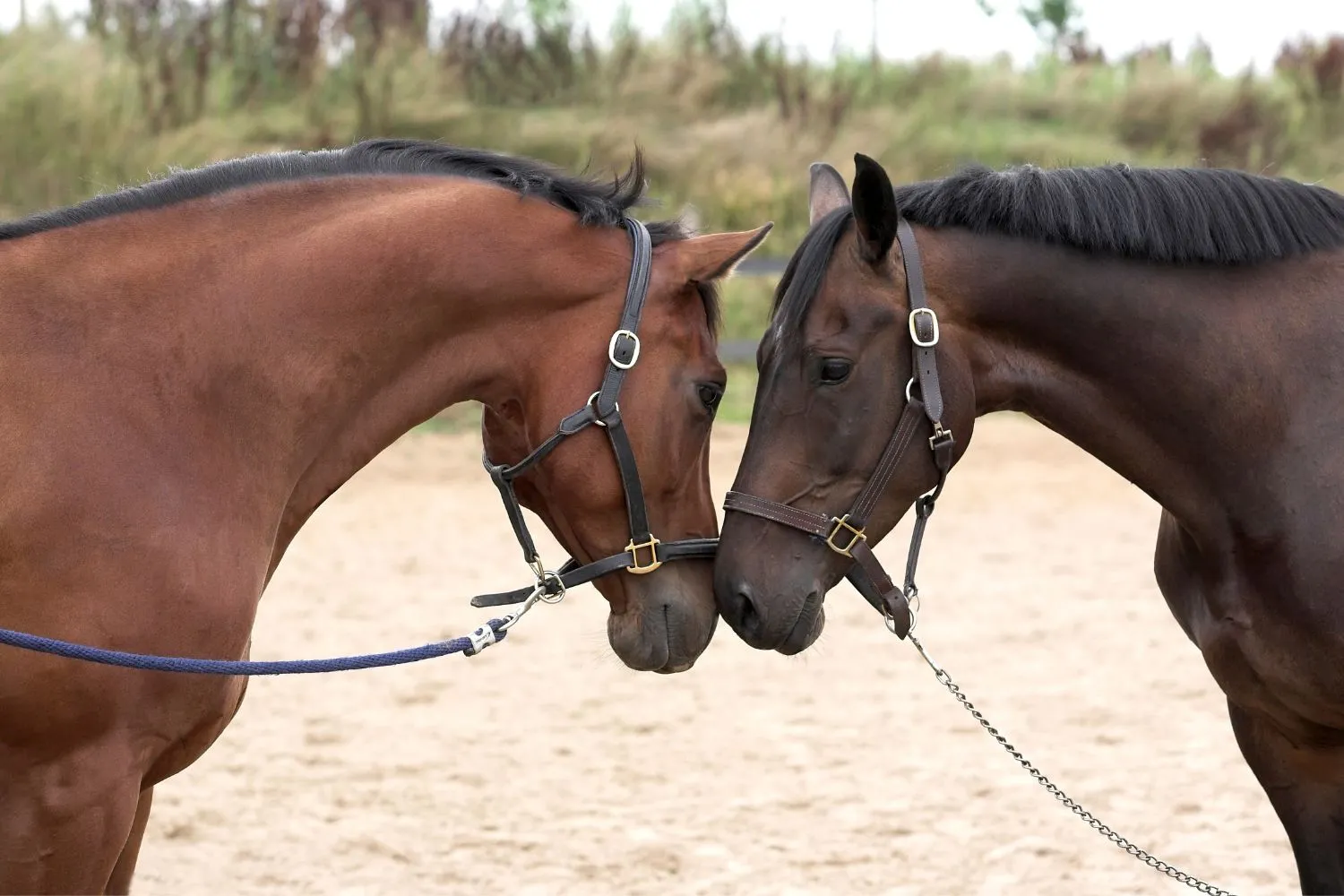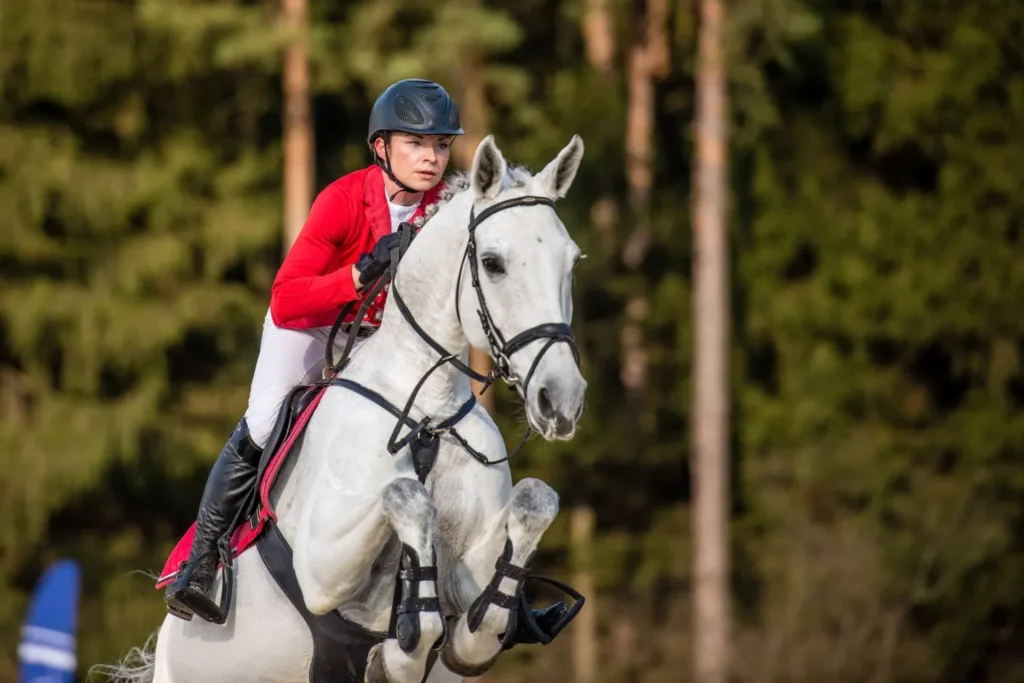Menu

Whether we ask the horse to perform a demanding dressage movement, ride a show jumping course to place or simply trot down the local forest trail, the tasks we ask of the horse are almost always against their nature. Horses are naturally created to graze in large herds in open spaces, and at the slightest danger, they react with flight within a few seconds. This trait has served them well in their wild life, but it is not so useful when it comes to the demands we place on our modern sport horses. As a rider, most people prefer a calm and reliable horse with a personality that they can trust. So how can we measure if the horse lives up to our expectations, and can it help us find the best match between horse and rider?
Read also: Avoid excess training: Remember to give your horse a break
To choose the right horse for the task we expect of it, it is necessary to know if the horse is robust or easily stressed, and if it is good at collaborating with humans. The horse's personality affects its ability to learn and perform a particular type of work. This is explained by Aurélie Jolivald, who is a researcher at the University of Nottingham in the UK. She has investigated how we can become better at predicting the horse's personality and behavior over a longer period of time. An in-depth understanding of the horse's personality can also explain individual differences in the horse's pain threshold or if it is at risk of developing stereotypical behavior.
She explains that we need a standardized test to understand the individual horse's personality, in light of the task we ask the horse to perform. There is not necessarily an appropriate or inappropriate personality, but the horse's strengths and weaknesses must be weighed against the purpose the horse is intended to fulfill. Aurélie Jolivald and her colleagues examined a group of 25 horses and asked the people who worked with them on a daily basis to assess the horse's behavior. For this purpose, they used the EPT, Equine Personality Test, a questionnaire specifically designed for horses. Six different people were sent a questionnaire and asked to describe their horses. They had to assess the horse in five different areas that correspond to the areas measured in human personality:
• Willingness to cooperate
• Robustness
• Outgoingness
• Friendliness towards humans
• Friendliness towards other horses
Three of the participants were instructors who knew the horses through training, while three of the participants took care of the horses on a daily basis. The instructors had a harder time evaluating all the horses, as they only saw the horses when they were riding, while the primary caregivers saw the horses in several different situations and had a more in-depth knowledge of the individual horses.
Read also: Training: Why it is important to have a curious horse
The questionnaire contained five main points, with several opposing sub-points. The first point was about willingness to cooperate, whether the horse was easy to deal with or difficult to handle, whether the horse would cooperate willingly or was stubborn and contrary. Next was the point of robustness, which is about how good the horse is at handling stressful situations, whether it is nervous or calm, anxious or self-assured, tense or relaxed. The point of outgoingness is about how curious and energetic the horse is, whether it is slow or forward-going, adventurous or seeking security, whether it is fast or stable and overall how lively the horse is.
Friendliness towards humans dealt with how the horse seeks contact with humans. Whether the horse was sociable and friendly or whether it distanced itself from humans. How often did the horse contact the people it knows and contact with strangers? The last point, friendliness towards other horses, focused on the horse's relationship with other horses. How often does the horse make contact with other horses, does it show affection and love towards others, and how closely attached is it to the herd?
Read also: 3 Serious Reasons Your Horse Pees During Training
The results of the study showed that there was good agreement with the answers for willingness to cooperate, robustness, outgoingness, friendliness towards humans, and it reflects the horse's personality. However, there was more uncertainty about the answers to the point of friendliness towards other horses, and there was greater variation in individual responses.
Overall, it suggests that the questionnaire can be a good starting point for assessing the horse's personality, and it can help find personality traits that may be relevant to the activity the horse is intended to perform, says Aurélie Jolivald.

There is no clear answer as to which personality is best for the task. This is the opinion of French Lea Lansade, who is a professor of ethology and works with studies in horse behavior and welfare. She and her colleagues examined 24 show jumping horses that had to perform a standardized behavioral test. The same group was evaluated the following year in a show jumping competition. It turned out that the horses that were assessed as the most fearful in the first test were also the most difficult to ride in the competition. The horses shook their heads, pulled on the reins, and exhibited evasive and unstable behavior. On the other hand, it was the same horses that made the fewest mistakes in the jumps. Lea Lasade believes that such a horse can be the ideal horse for professional riders, as their caution means they do not hit the jumps, while an amateur rider will be less tolerant of the horse's slightly difficult behavior and it can be harder for an untrained rider to control the horse. If the rider puts the horse in a position it cannot jump from, the only way out for the horse is to refuse the jump, the researchers explain.
There is no ideal personality for horses. Each individual horse must be assessed with the strengths and weaknesses it comes with, and one must weigh how it fits together with the rider and the task the horse is intended to perform. There are some things in the horse's personality that cannot be changed, but the horse's identity also develops over time as it learns new things, gains new skills and develops in relation to humans, and therefore there is no clear answer as to which personality traits are best, concludes Aurélie Jolivald.
Read also: THE HORSE’S BRAIN